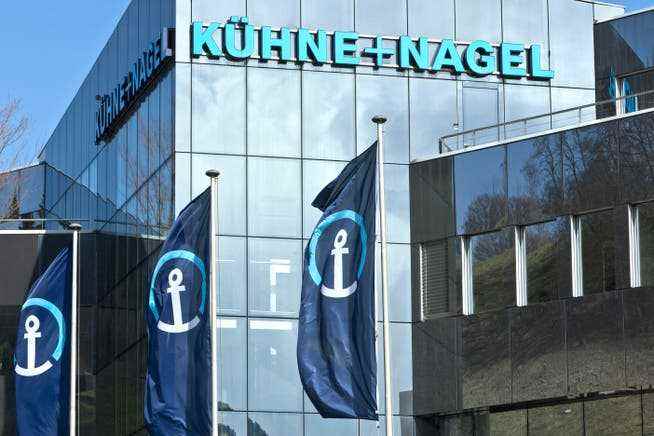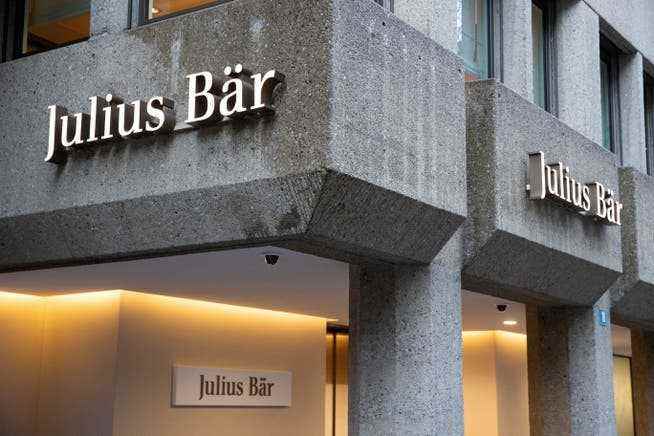Majority shareholder wants to take over Bobst completely and take it off the stock exchange
The packaging machine manufacturer Bobst is to be taken off the stock exchange.
tsf. The majority shareholder of the packaging manufacturer Bobst, JBF Finance based in Buchillon, wants to take over the company completely and take it off the stock exchange. As Bobst announced on Monday, JBF has announced a public takeover bid for all publicly held shares in Bobst Group SA. The investment company currently holds around 53% of the company’s shares and voting rights.
JBF announced that it would pay CHF 78 in cash per Bobst share, a premium of 22% compared to the average price over the past four weeks. Upon completion of the Offer, JBF expects that Bobst Group will be privatized through a delisting of its shares from the SIX Swiss Exchange. However, the Bobst Group will continue to be managed by both independent directors and directors belonging to the Bobst family.
Bobst’s Board of Directors has reviewed the offer and, according to the announcement, is convinced of the commercial merits of the transaction for the company. He welcomes the option for shareholders to tender their shares at a premium during these uncertain times.
This offer provides the company with the right conditions to implement a long-term strategy, complete its digital transformation and maintain its strong industrial activities in Switzerland.
The investment company JBF Finance brings together the interests of the various members of the Bobst entrepreneurial family. It is held by more than 60 shareholders close to the family. Bobst is an international manufacturer of machines and systems for the packaging industry.
Bobst grew strongly in the first half of 2022. Sales rose by almost 16 percent to CHF 772.5 million, as the company announced on Monday. The operating result (EBIT) rose from 15 million francs in the same period last year to almost 29 million now. Meanwhile, net income increased from CHF 5 million to CHF 22 million.
Kuehne + Nagel is making rapid progress

Kuehne + Nage can grow strongly in the crisis: Headquarters in Schindellegi.
tsf. The logistics group Kuehne+Nagel Group is doing surprisingly well despite global challenges such as the Ukraine war, the lockdowns in China, high energy prices and inflation. He increased net sales in the first six months by 55 percent to 20.6 billion francs, as the group announced on Monday. Gross profit – the sum remaining after shipping companies and airlines have paid for fluctuating freight tariffs – increased by 36 percent to CHF 5.9 billion. At EBIT level, Kuehne + Nagel more than doubled its operating profit to CHF 2.2 billion. Net profit climbed 113 percent to CHF 1.63 billion.
Notably, the company has benefited from the acute supply chain issues. Since the delivery of goods has become difficult for many companies, they are apparently increasingly relying on globally active logistics groups that are better able to deal with such situations. “On the basis of our digital platforms and industrial solutions as well as the commitment of our employees, we were able to implement efficient and complex logistics solutions for our customers,” explains CEO Detlef Trefzger in the press release.
For the second half of 2022, Kuehne + Nagel expects demand to remain solid. The group is well positioned, even if the geopolitical and macroeconomic upheavals are challenging the logistics industry, explained Chairman of the Board of Directors Jörg Wolle.
Private bank Julius Baer feels the market turbulence

Bank Julius Baer is also feeling the effects of the difficult market conditions.
tsf. The increasingly difficult economic and geopolitical conditions are affecting the private bank Julius Baer. As the bank announced on Monday, assets under management fell by 11 percent to CHF 428 billion in the first six months of the current year. The company had to accept cash outflows of a nice 2.7 billion francs in the first four months. Since the end of April, however, this has been partially offset by a high inflow of new money of CHF 1.5 billion. The bottom line was a cash outflow of CHF 1.1 billion in the first six months.
The IFRS consolidated profit attributable to shareholders fell by 26 percent to CHF 451 million in the first half. Adjusted net income (excluding corporate transactions) fell by 25 percent to CHF 476 million. Profit was impacted by the final charge of 55 million Swiss francs related to the settlement reached in a 2011 litigation in Lithuania. The bank already informed about this at the beginning of July.
Ryanair is aiming for a strong summer after a surprisingly good quarter
(dpa) The recovery in ticket demand brought a surprisingly large profit for Europe’s largest low-cost airline Ryanair in the spring. In the first business quarter (until the end of June), the surplus was almost 188 million euros, as the company announced on Monday. A year earlier, a loss of 273 million euros had been recorded. If one excludes transactions to hedge fuel costs, the result of EUR 170 million was around EUR 20 million higher than the average expected by analysts. In the summer, Ryanair boss Michael O’Leary wants to offer around 15 percent more flights than before the 2019 pandemic – despite the recent bottlenecks at many airports.
In the past quarter, Ryanair carried around 45.5 million passengers, a good five and a half times as many as in the same period of the previous year, which was affected by the corona virus. Machine utilization improved from 73 to 92 percent. Sales increased sevenfold to 2.6 billion euros. Due to many uncertainties, management is still unable to make a profit forecast for this financial year.
